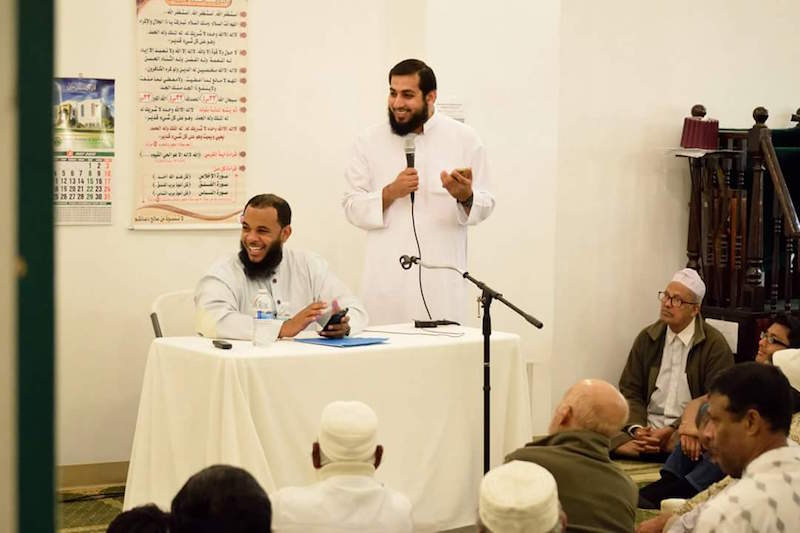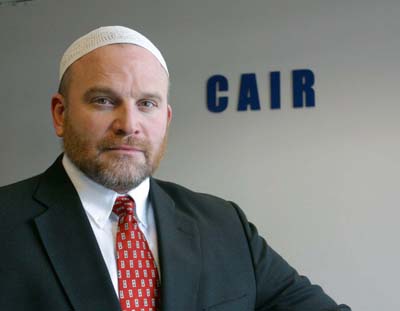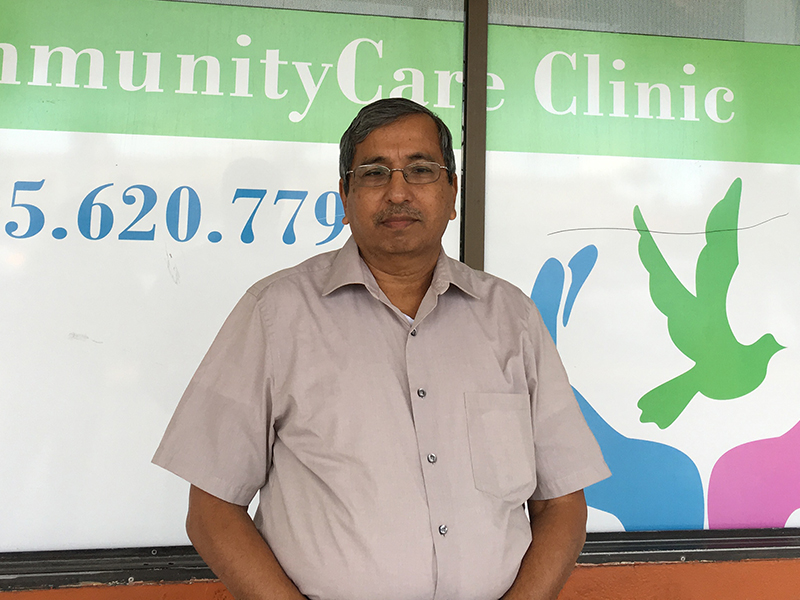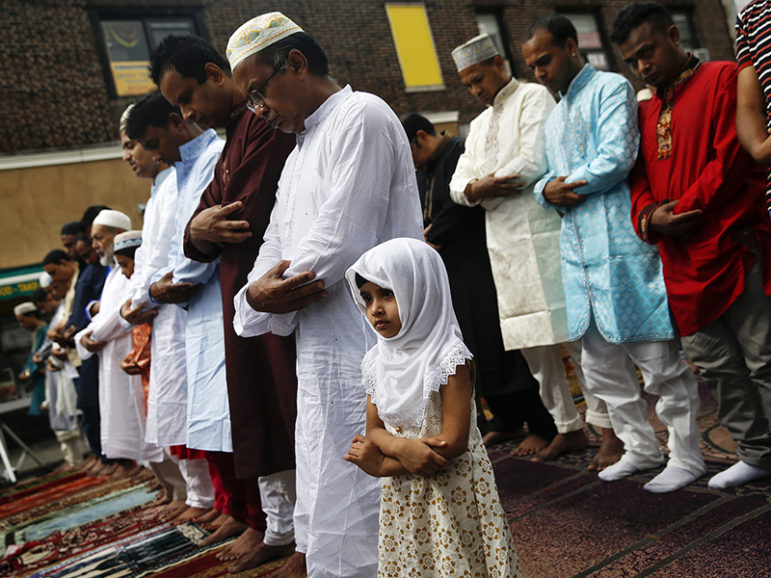(RNS) American Muslims are looking forward to two important holidays this week — one Muslim, the other secular — but in many cases, with trepidation.
Celebrations marking the end of Ramadan and the Fourth of July fall days apart this year, and both often involve gatherings in parks, courtyards and other open spaces.
“Generally, we’re always worried about outdoor activities,” said Imam Jawad Rasul, the leader of Masjid At-Taqwa in Atlantic City, N.J.
At a time when threats against Muslims are increasing in the U.S., and in the wake of a massacre in Orlando, Fla., by a Muslim man, American Muslims are wondering about the risks of congregating in public.
The prayers that mark Eid al-Fitr, the celebratory conclusion to the holy month of Ramadan — a time of intense reflection and fasting — are held outside in parks and other open spaces in many Muslim communities. And the picnics and cookouts that mark both the holiday and July Fourth take place outside, too.
READ: ‘Defusing Hate’: Holocaust museum publishes a handbook
For the most part, Muslim Americans are not canceling events or moving them indoors. They are, however, ratcheting up security.

Imam Jawad Rasul at the microphone making an introduction for visiting Imam Shadeed Muhammad, seated. Photo courtesy Hassan Younas
“In the days after Eid we have a outdoor barbecue or a picnic. That’s how Americans celebrate July Fourth and that’s how we celebrate Eid — along with July Fourth,” said Rasul, who has asked local police to help safeguard his mosque’s outdoor gathering.
A police presence may make someone with bad intentions think twice, Rasul said. That’s also the thought at synagogues during the most well-attended events on the Jewish calendar, when police officers are called upon to protect congregants.
Though prudence necessitates extra security, Rasul tells fellow Muslims not to be disheartened.
“There is Islamophobia but there is a lot more love and respect than there is Islamophobia,” Rasul said.
“I know there will be a day when the Muslims will not be the bogeyman in America anymore. I feel bad for whichever group it will be then. But this is one of those phases in American history that will pass.”

Ibrahim Hooper is the communications director for the Council on American-Islamic Relations. Religion News Service photo courtesy of CAIR
The Council on American-Islamic Relations, the nation’s largest Muslim civil rights group, is looking to help Muslims institutions reduce their risks on the holiday.
“We are urging community leaders to step up security around activities associated with Eid,” said Ibrahim Hooper, CAIR’s national spokesman. “We offer a booklet on mosque safety to any community leaders who contact us.”
Threats against mosques often spike after mass killings by Muslim perpetrators, and social media lights up with anti-Muslim sentiment. It happened after attacks in Paris on November 13, in San Bernardino, Calif., on Dec. 2, and last month in Orlando.
The Fort Pierce-area mosque once attended by gunman Omar Mateen before he killed 49 people at a gay nightclub on June 12, has received phone messages threatening physical harm since the shooting rampage.
And on June 27, about 200 motorcycle riders took part in a “patriotic ride,” driving around the mosque 15 times and shouting epithets. People have left messages on its Facebook page accusing it of “breeding jihadis.”
Imams report that the Muslim community’s anxiety has been further heightened by presumptive GOP presidential nominee Donald Trump, who has suggested banning Muslim immigration for fear of terrorism.
READ: In Israel, followers of different religions help each other keep the faith
Eid, one of the most important days on the Muslim calendar, falls on July 6 this year, though it is celebrated for up to three days in some Muslim communities. Families typically host elaborate meals, visit friends and call relatives abroad.

Shabbir Motorwala is a founding member of COSMOS, the Coalition of South Florida Muslim Organizations. Photo courtesy of Shabbir Motorwala
All outdoor events are going ahead as planned this year, said Shabbir Motorwala, a co-founder of the Coalition of South Florida Muslim Organizations. Muslims in the region will have a variety of ways to celebrate Eid and July Fourth in the Florida sunshine, including at an Eid carnival outside a mosque in a Miami suburb.
“We are more cautious. We have more security. But we are not running away,” said Motorwala. If Muslims don’t celebrate the holiday as they traditionally do, openly, then the terrorists who aim to divide Muslims from non-Muslims will have won, he said.
“And we will have been a victim twice. First from the so-called Muslim terrorists and then from the Islamophobes.”





